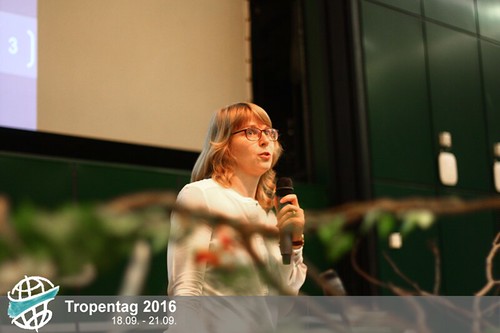Reply to comment
Jury on The Josef G. Knoll European Science Award 2016 Winners
Tue, 09/20/2016 - 09:26 — FadliThe Josef G. Knoll European Science Award is given every two years to the authors of the best doctoral or post-doctoral theses. As a pioneer in agricultural research, it supports young researchers whose work focuses on improving the status of food and nutrition security in developing countries and makes a contribution to reducing hunger. The winners who have been awarded this year are three in total, and have very interesting profiles:

Dr. Sabine Liebenehm, from Leibniz University of Hannover, wrote a thesis on “New Insight from Behavioral Economics in Developing Countries”. “She produced an excellent work which is very important for small-scale farmers in developing country. It has direct implications regarding poverty and hunger,” announced the panel of judges.

Dr. Willmar Leiser's theses on “Sorghum Breeding Strategies for Phosphorus - Limited Environments in western Africa: From Field to Genome Level", instead, shows excellent science as it combines genomic work with practical agronomic field studies and participatory breeding approach. “It has high relevance for enhancing sorghum productivity in West Africa and thus directly contributes to food security,” commented Mathias Becker.

Last but not least, Dr. Abu Hayat Md. Saiful Islam worked on “Impact of Technological Innovation on the Poor-Integrated Aquaculture-Agriculture in Bangladesh”. Its research has been defined as a very innovative and exhaustive economic analysis, particularly when looking at the effects of time. Mathis Becker seemed to be interested in the topic too, when he said: “Scientifically and practically important insights for integrating poor people in rice-fish production and related value chains”.




